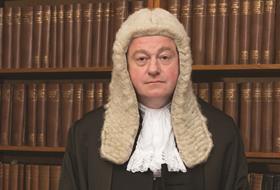Media personality Coleen Rooney’s solicitor did not commit misconduct over an agreed costs budget for his client’s libel trial, a senior costs judge found today.
The ruling is the latest development in the so-called ‘Wagatha Christie’ case in which fellow footballer’s wife Rebekah Vardy sued Rooney for libel. In 2022 the High Court ruled in favour of Rooney and awarded her 90% of her costs on the indemnity basis.
The women returned to the High Court this week over Rooney’s claimed costs, which total £1,833,906.89.
Jamie Carpenter KC, for Vardy, argued that Rooney’s solicitor, Brabners partner Paul Lunt, had committed misconduct by understating the incurred costs in a Precedent H, a costs budget form, without informing the other party.
Robin Dunne, for Rooney, said the certificate on Precedent H specifically required the party to state what the proportionate incurred and estimated costs are/will be and there was ‘no misconduct whatsoever’. He added that accusing Lunt of misconduct was an ‘astonishing submission to make’.
The court heard that the actual costs incurred would be deemed to be disproportionate by Rooney’s solicitors and so were, in the solicitor’s view, not included in Precedent H as they did not fit the ‘reasonable and proportionate’ requirement of the form.
Read more:
Giving judgment this afternoon on the misconduct point, senior costs judge Andrew Gordon-Saker, sitting in the Royal Courts of Justice, said: ‘It is not in issue that Mrs Rooney’s lawyers put in her budget incurred costs at significantly less time than had actually been incurred, despite the fact they were criticising Mrs Vardy’s lawyers for spending more time.’
He added: ‘The costs included within Precedent H were those that the conducting solicitor at the time viewed to be proportionate in the litigation.’

The judge said: ‘Given the lack of clarity in the wording of the statement of truth [in the Precedent H form] and the competing interpretations that have been argued, I cannot say that Mrs Rooney’s solicitor’s interpretation amounted to unreasonable or improper conduct. There is logic in Mr Dunne’s argument that a solicitor who had concluded he could only include reasonable and proportionate costs in the incurred [costs form]…would assume that the other party have done the same.'
The judge said he would ‘criticise Mrs Rooney’s lawyers in embarking on a resolute attack on Mrs Vardy’s incurred costs’ when the ‘costs shown on their client’s budget as incurred costs was in fact only part of the piece’.
He added: ‘However on balance, and I have to say only just, I cannot say given the uncertainty of the wording of the statement of truth and the assumption Mrs Rooney’s solicitors could have made as to the basis of Mrs Vardy’s costs that the failure to be transparent was significantly unreasonable or improper within the definition provided by the Court of Appeal.
‘It may well be that the rule committee may wish to look at the statement of truth in Precedent H to see whether it is sufficiently clear.’























